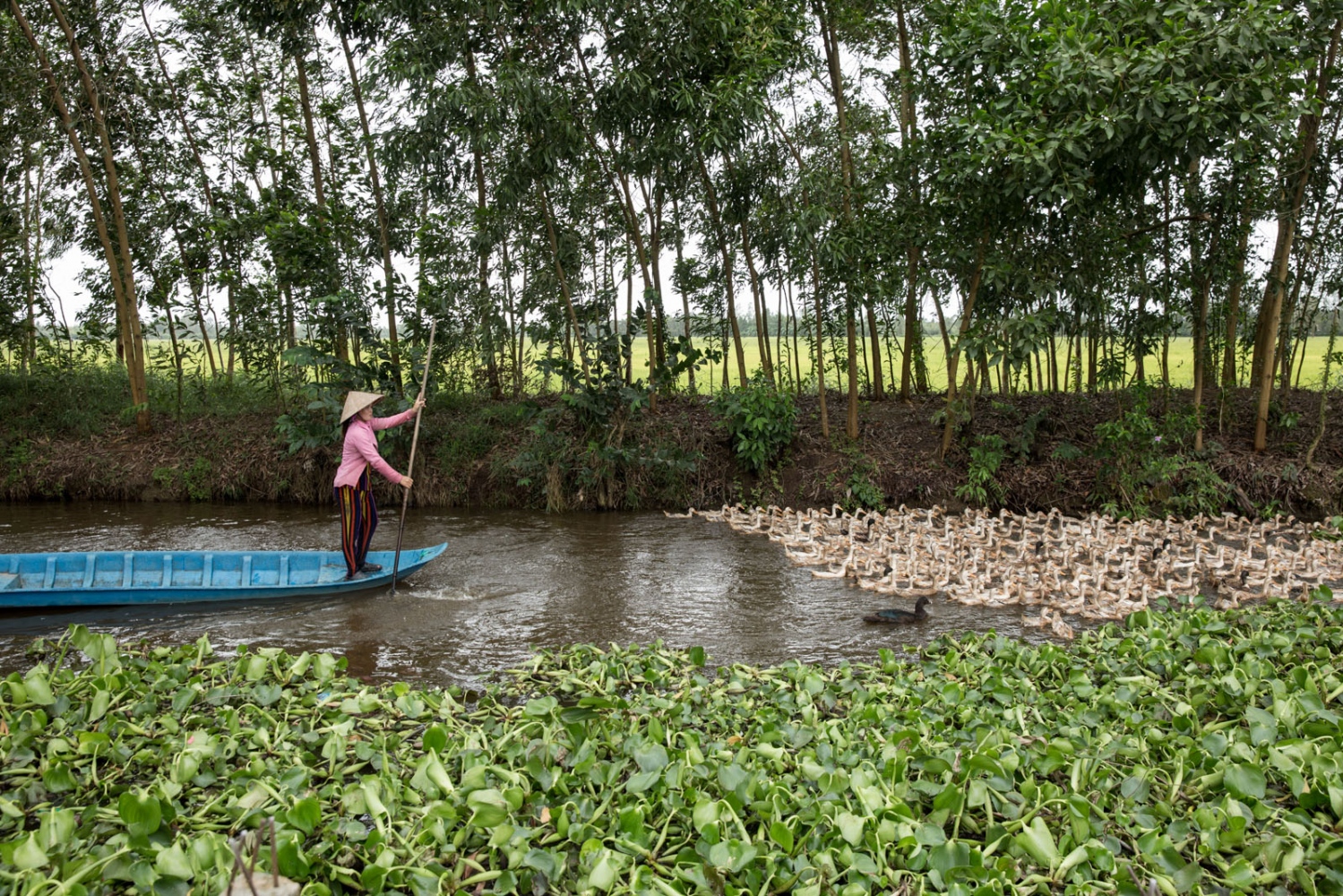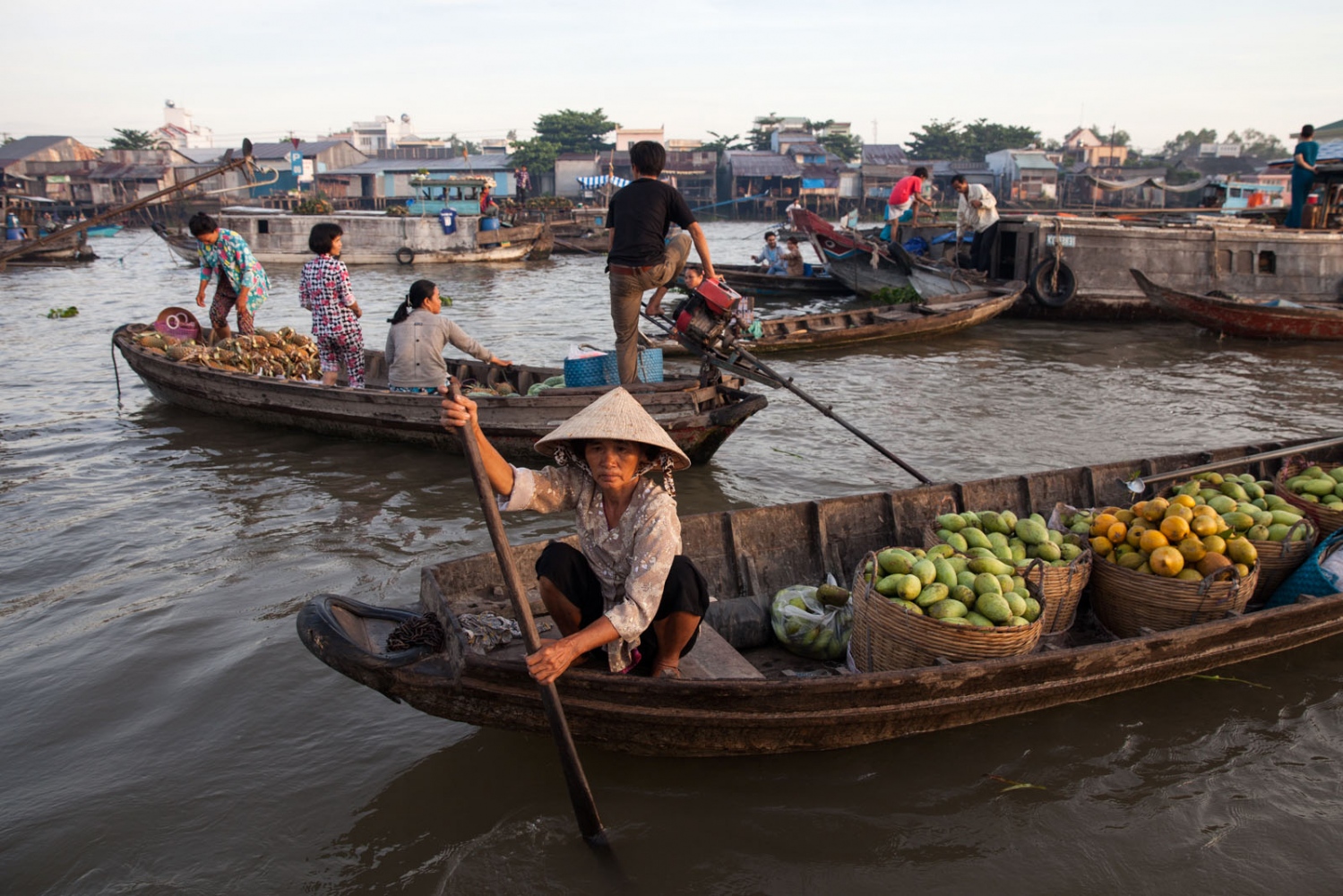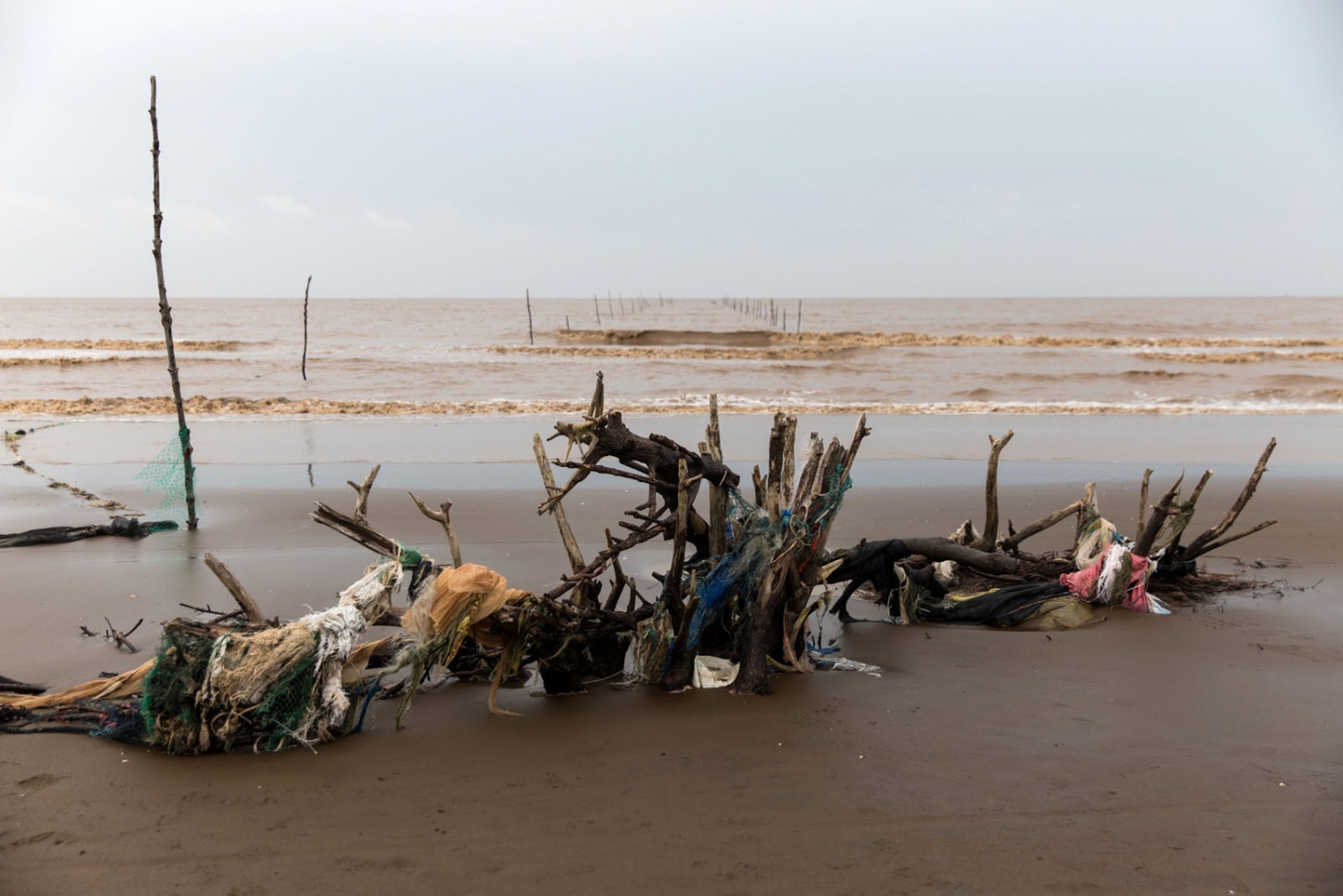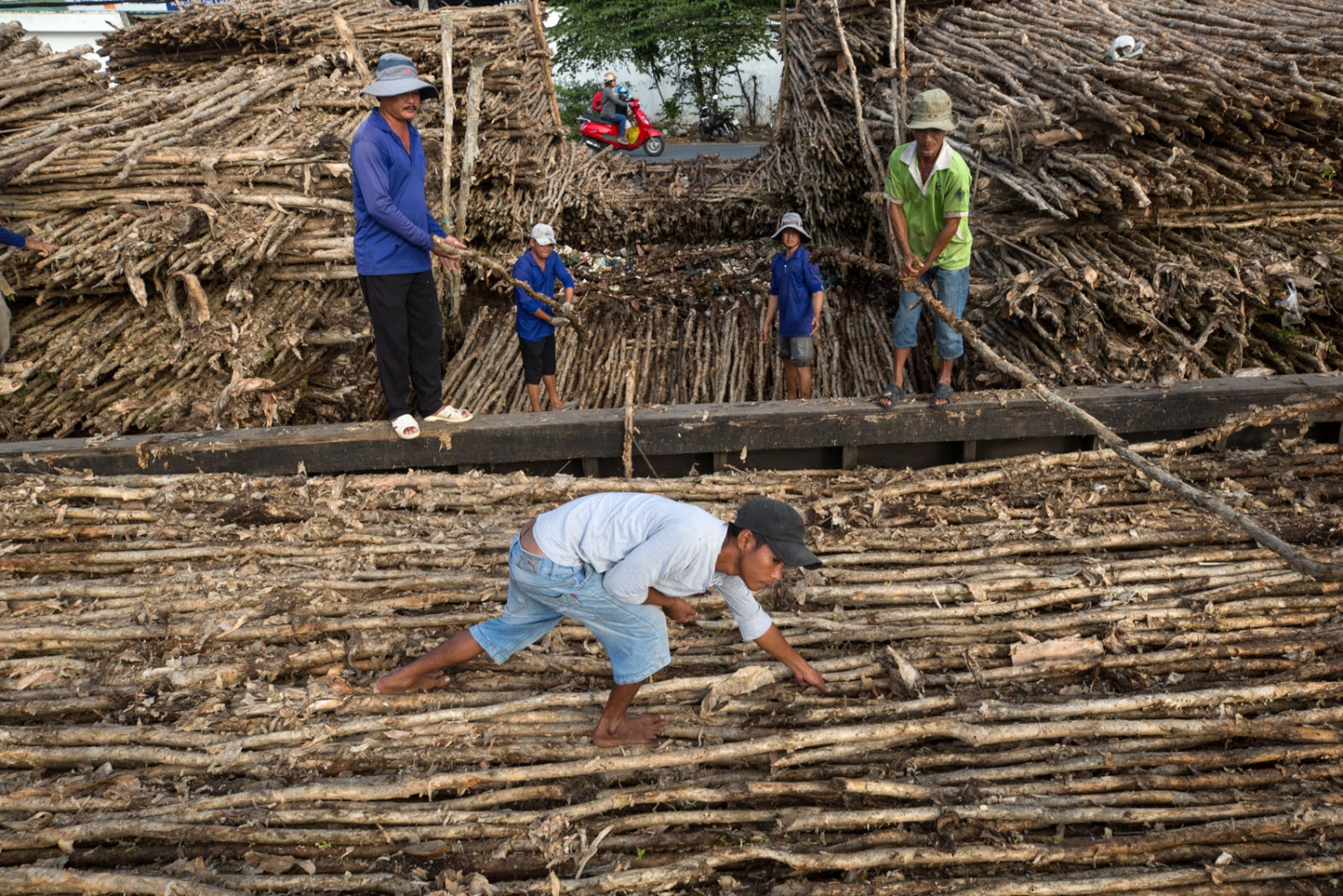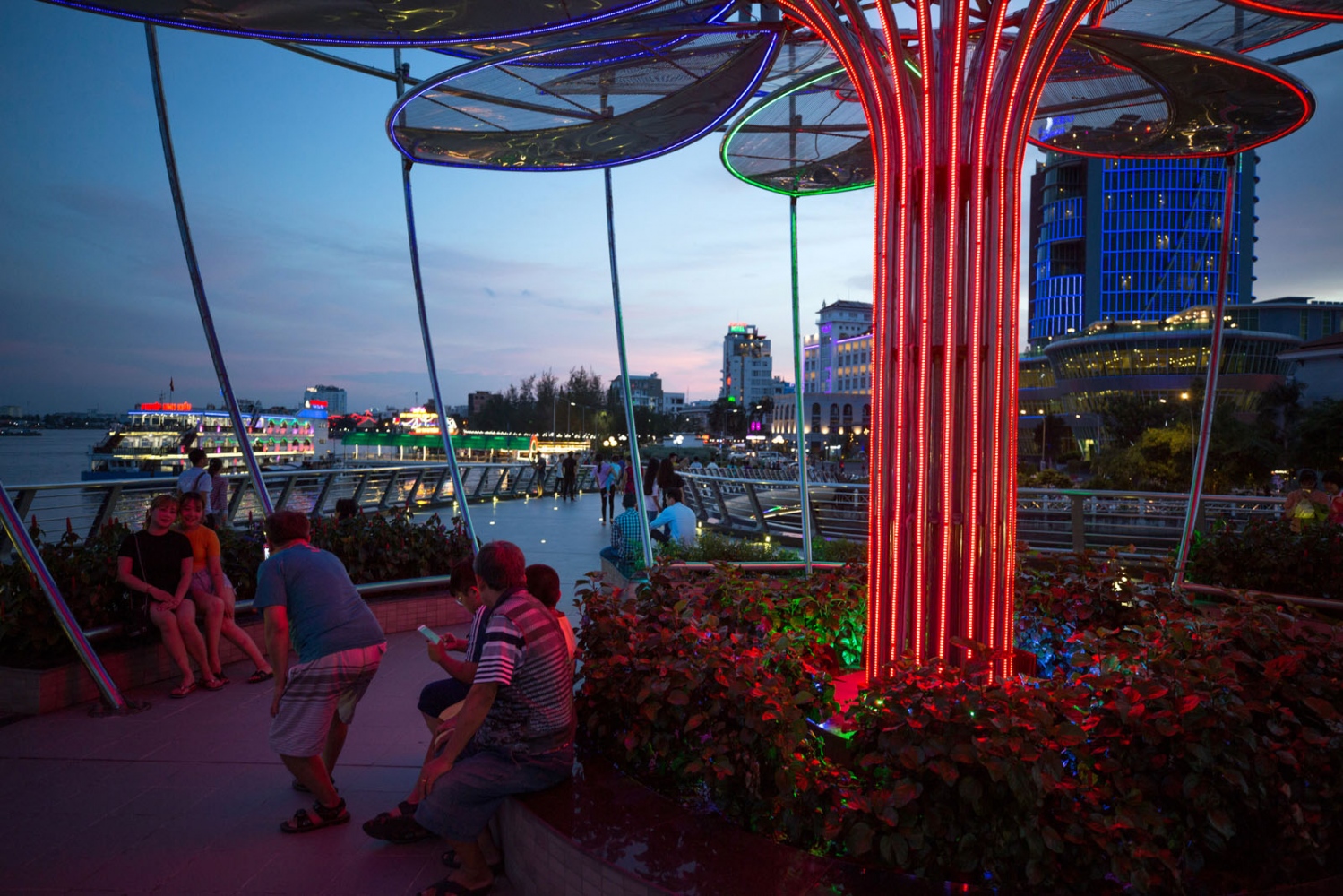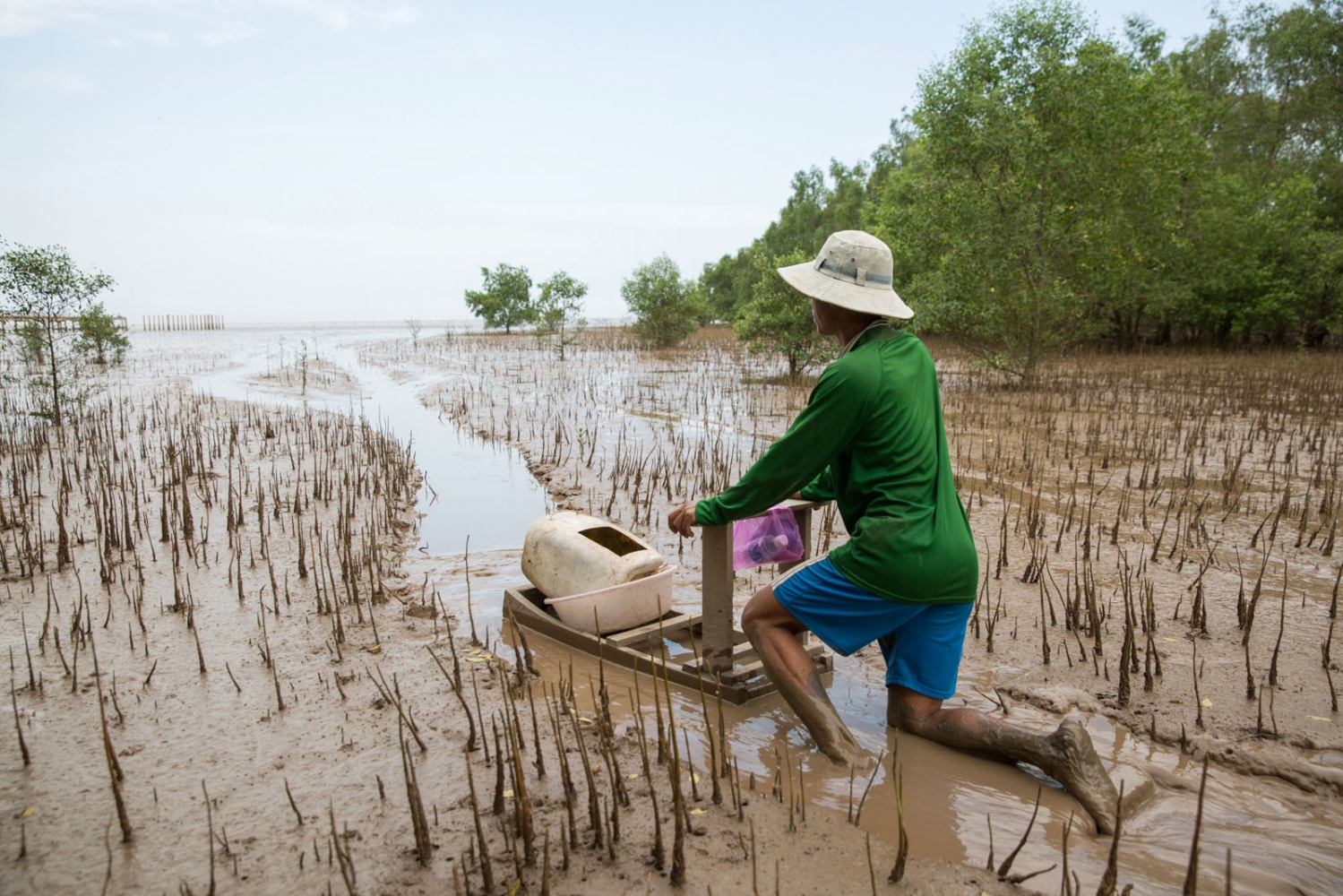Vietnam’s Mekong Delta is one of the world's areas most ‘at-risk’ from the effects of climate change, which is likely to pose challenges both for its environment and its large population in years and decades to come. Local communities are seriously affected by rising sea levels and the intrusion of salinity into farmland. More than half of Vietnam’s rice production, 70% of its aquaculture and one third of its GDP are generated in the delta, which is home to 20 million people.
This increasing salinization, made worse by an upsurge in global temperatures that causes droughts and floods in the Mekong region, along with erratic seasonal weather variations and the destruction of coastal mangrove forests pose significant and acute threats to the future of Vietnam’s rice basket.
Traditionally salt water rarely intruded more than 20km inland. But with rising sea levels, research now suggests it is encroaching on average 80km. This, coupled with the reduced flow of the Mekong River, a consequence of the construction of several large-scale dam projects, is creating serious challenges for those living off the land. Countless people in the region have already lost significant chunks of arable land or have become victims of powerful typhoons.
Whilst long-term approaches and large foreign funded implementation projects gain most of the spotlight, Vietnamese experts are leading the way in research and solutions at a local level in an attempt to mitigate and adapt to environmental changes. Dr Duong Van Ni, a professor at Can Tho University, freelance ecologist Nguyen Huu Thien and Dr Nguyen Minh Quang of the Mekong Environment Forum are just some of the people who work tirelessly to protect their homeland.
This long-term project looks to illustrate the beauty and traditions of the Delta. It also looks to highlight the serious environmental impacts facing this complex ecosystem and how it effects the people living there.

